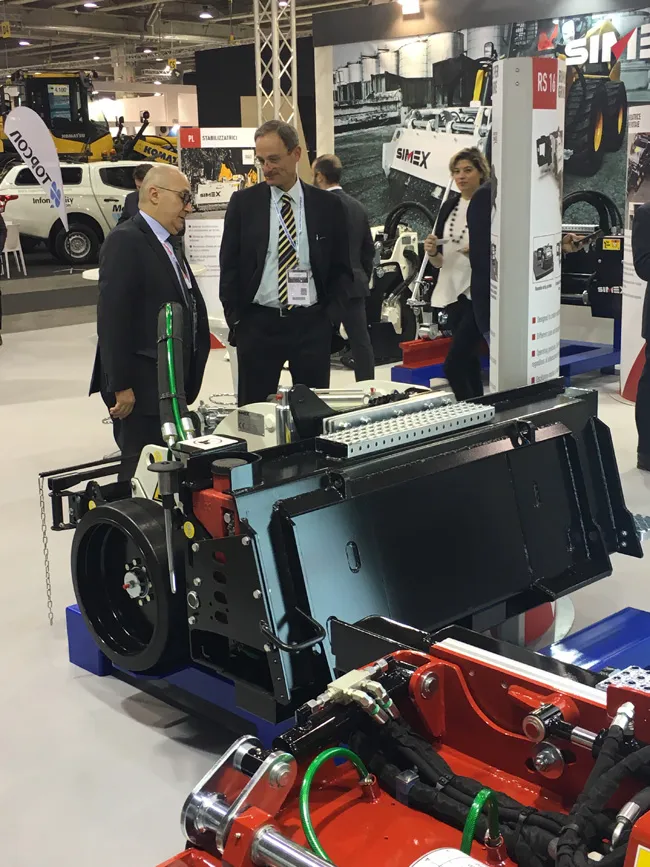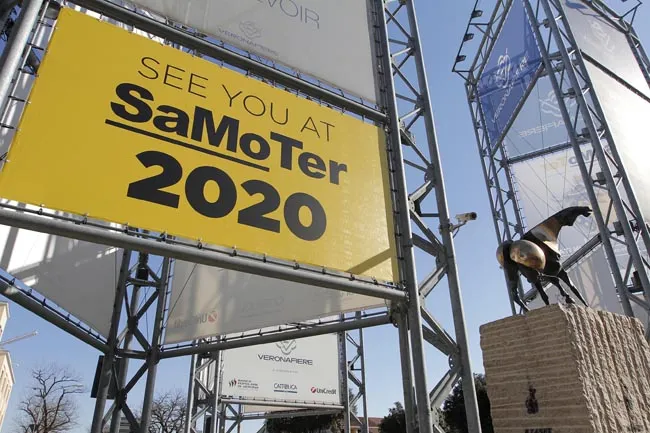
Some of the main driving forces for purchasing new construction machinery in Italy are better efficiency and green credentials in terms of emissions and noise.
Intelligent machines are coming to play an increasingly central role in the sector, according to the new
Moreover, almost 4% of users (with peaks of 16% in the mining sector) have replaced still-operative conventional plant with s-called smart models.
This survey involved a sample of 514 companies taking in construction companies as well as manufacturing, mining, agricultural or specialist firms.
The construction machinery fleet is estimated at 179,224 vehicles. It largely comprises earth-moving machines (66.1%), lifting equipment (20.7%), road-building (8.2%), concrete (4%) and drilling plant (1.1%). On average, 30% of these vehicles are owned by hire firms, with significant distinctions between various kinds of machine. The rental fleet ranges from as much as 61% for hoisting/lifting vehicles to 2% for concrete plant.
The manufacturing sector is the one that has most up-dated its fleet of vehicles by introducing intelligent machines, followed by large construction companies. The search for more innovative models (67.9%) was the main factor influencing the decision to prefer new technologies.
Geolocation is the most common feature sought among various machine technologies, for both user-owner and rental fleets, while benefits considered to be the most strategic by companies (67.4% of interviewees) focus on safety, as well as environmental sustainability, particularly for large construction companies, the manufacturing sector, multi-utilities and farms.
In the future, companies hope to see an increase in the strategic nature of smart technologies in coming years. Predictive maintenance is acknowledged as one of the most important today and in the future, while electrical engines, according to interviewees, will be the field seeing the most growth.
It is estimated that there are just under 120,000 users of construction machinery, of which more 70% in the earthmoving sector. On average, 78% of the fleet consists of machines purchased new, the remaining 22% being second-hand.
The share for second-hand machinery is particularly high for drilling machines, at more than 40%. For earthmoving, the figure has increased to 22%, from 7% for the 2008 survey.
The decision to resort to rental, compared to the use of owned machinery, has increased to about 30% over the past two years. Small construction companies, nurseries and farms are the business categories that make the most use of rental services.
Owned machines are used on average for 759 hours a year, compared to 281 for plant on hire. As regards earth-moving, the average figure (690 hours) is in line with the 2008 result. Analysing the composition of the machinery pool in relation to propulsion systems, the sample in question indicates a higher incidence of obsolete machines (Stage I and II) among concrete and drilling plant. Earthmoving and road machinery, on the other hand, boast around one-third of the machinery pool in Stages IV and V (recently added).
The average age is around 11 years, albeit with some distinctions: road and earthmoving machines have an average age of around 10 years, while for lifting/hoisting machines the figure is more than 14 years. Among operators, the “youngest” machine pool involves companies operating in waste collection and disposal, excavations and demolitions, as well as large construction companies; the “oldest” are operated small construction companies.







